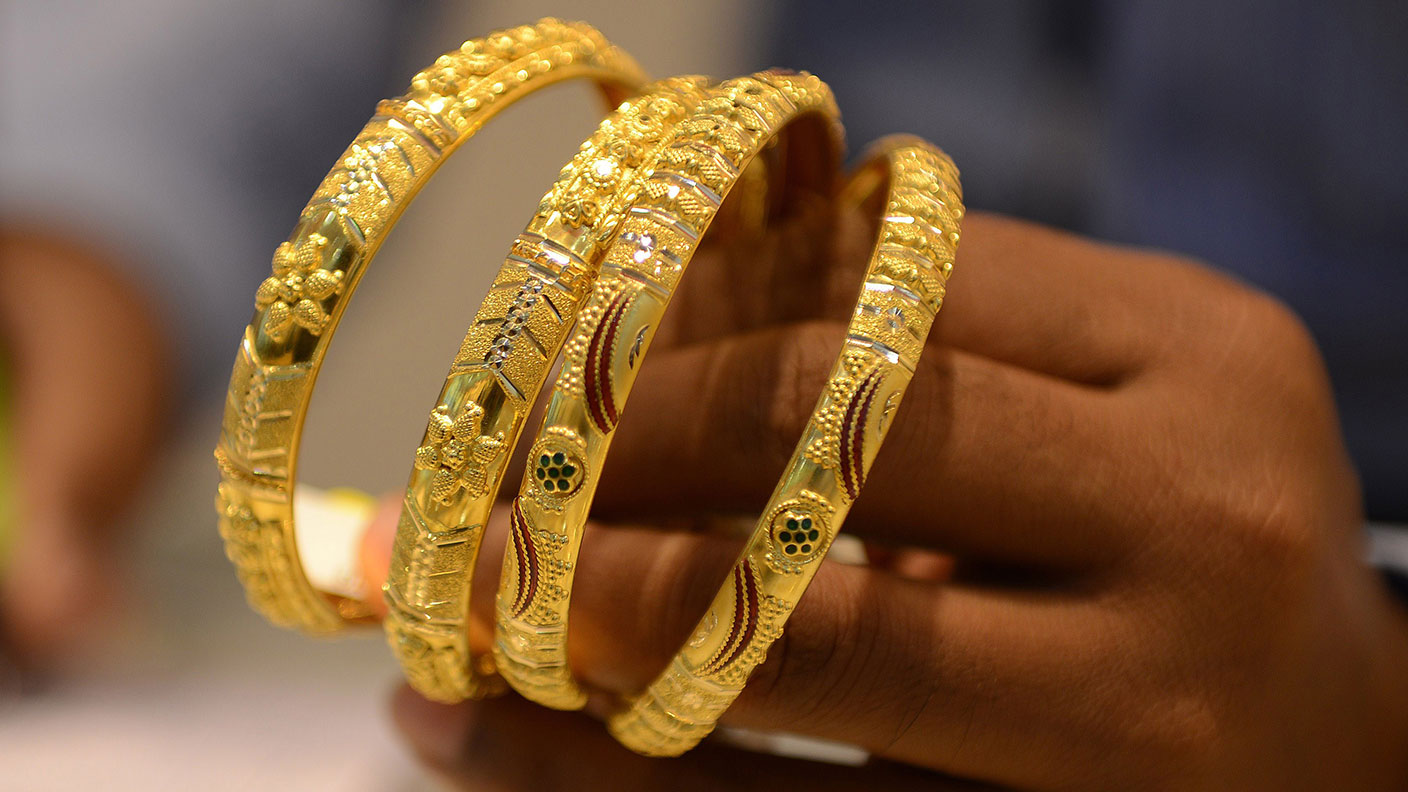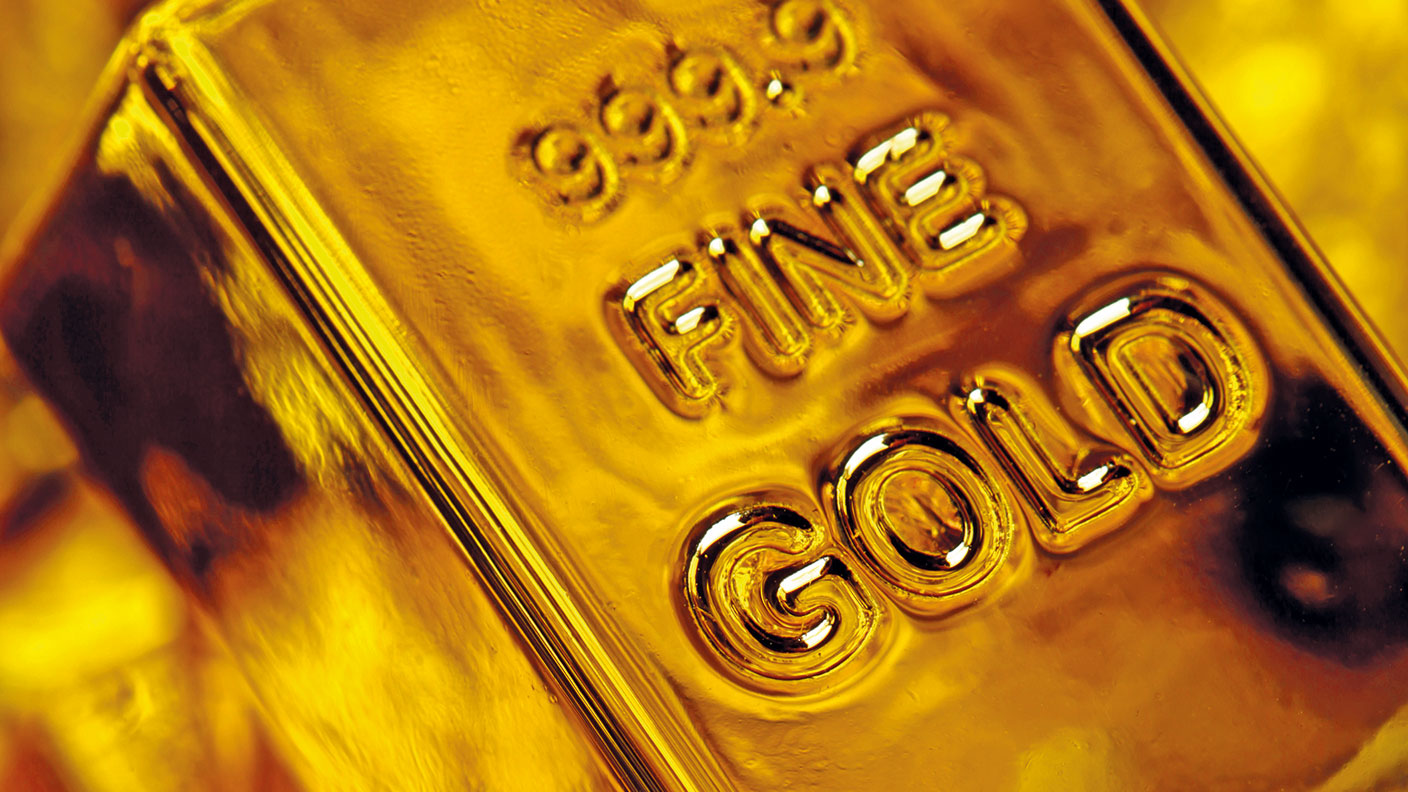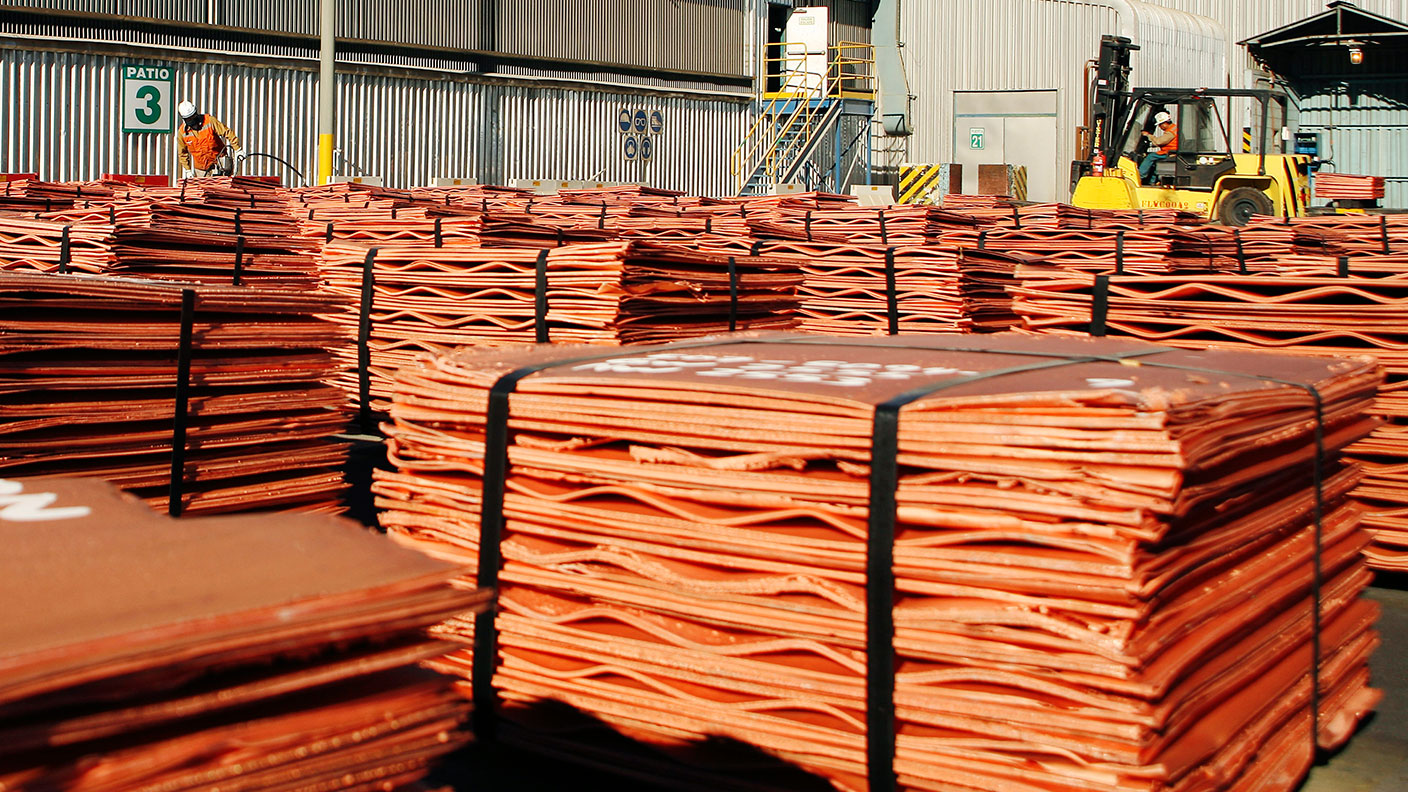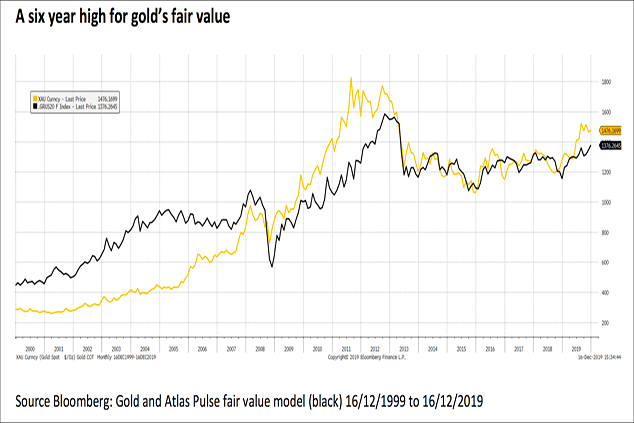Why $1,000 an ounce isn’t the peak for gold
Gold touched a nominal record high of $1,000 an ounce yesterday, and crude oil hit a high of $111. So why the ongoing surge? It's all down to the dollar, which has been setting some records of its own this week.

Get the latest financial news, insights and expert analysis from our award-winning MoneyWeek team, to help you understand what really matters when it comes to your finances.
You are now subscribed
Your newsletter sign-up was successful
Want to add more newsletters?

Twice daily
MoneyWeek
Get the latest financial news, insights and expert analysis from our award-winning MoneyWeek team, to help you understand what really matters when it comes to your finances.

Four times a week
Look After My Bills
Sign up to our free money-saving newsletter, filled with the latest news and expert advice to help you find the best tips and deals for managing your bills. Start saving today!
This feature is part of our FREE daily Money Morning email. If you'd like to sign up, please click here: Sign up for Money Morning
It was a bit of record-breaking day yesterday.
Gold touched $1,000 an ounce, a nominal (excluding inflation, in other words) record. Crude oil hit $111 a barrel, a record even if you do adjust for inflation.
MoneyWeek
Subscribe to MoneyWeek today and get your first six magazine issues absolutely FREE

Sign up to Money Morning
Don't miss the latest investment and personal finances news, market analysis, plus money-saving tips with our free twice-daily newsletter
Don't miss the latest investment and personal finances news, market analysis, plus money-saving tips with our free twice-daily newsletter
Why the ongoing surge in key commodity prices? Well, it's down to the dollar, which also broke a series of records, though on the way down, rather than the way up.
The US currency hit a record low of more than $1.56 against the euro; it also nearly hit $1 to a Swiss franc (a classic safe haven currency) for the first time in history, according to The Telegraph. Meanwhile, it fell below 100 yen for the first time in 12 years.
So why the collapse and what's next?
The dollar took a dive yesterday. February retail sales fell by 0.6%. This comes hot on the heels of terrible unemployment data at the end of last week the US economy shed 63,000 jobs in February, the most in five years. The news merely confirmed for most people that if the US wasn't already in a recession at the end of last year, it certainly is now.
Another big worry was problems at the Carlyle Capital Corp fund. The group has defaulted on around $16.6bn of debt, and it looks like its creditors are likely to seize its remaining assets leaving investors with very little, if anything. The private equity firm had invested in AAA-mortgage-backed debt issued by Freddie Mac and Fannie Mae, which was seen as at the safe end of mortgage debt. The fact that the fund has been driven to the wall now has investors worried that a flood of mortgage-backed securities will hit the market, driving prices down further, and leading to more write-downs.
The Federal Reserve and the US government are still desperately trying to bail out the markets and the economy. One tactic being used is sheer denial; Treasury Secretary Hank Paulson is still talking about support for a "strong dollar" policy. Of course, Mr Paulson was also talking about the US housing market bottoming out about a year ago. I suspect that Alistair Darling and Gordon Brown will also still be talking about the UK's fundamental stability when we're looking at double-digit house price falls and rising unemployment.
Mr Paulson is also looking at ways to improve regulation over mortgage lending standards. A bit late for that now, Hank.
The other tactic is to toss money randomly at the problem. Earlier this week, the markets surged as the Fed decided it would take a wider range of dodgy mortgage-backed collateral in exchange for up to $200bn of 28-day loans.
With markets already expecting that the Fed will cut interest rates by at least 50 basis points at its next meeting on March 18th, it's no surprise that the dollar has fallen off a cliff.
And in turn that's boosted gold. Now that it's reached the heady heights of $1,000 an ounce, many people will be tempted to take profits. But the yellow metal may yet have further to go. In inflation-adjusted terms, it would still have to hit $2,500 an ounce to set a new record in real terms. And the forces driving it higher don't look set to go away any time soon.
Those living in fear of the plunging dollar are piling into the euro for now. But as David Bloom at HSBC points out, they are focusing on the relatively strong German economy and ignoring the fact that countries like Spain, Ireland and Italy are in trouble. "This is a big mistake. We will soon see contagion from the US and then both sterling and the euro will be in trouble," he told The Telegraph.
Peter Hambro of Peter Hambro Mining adds that "We're living through a period of competitive devaluations across the world. Everybody is trying to stimulate their economy by driving down their own currencies."
That leaves gold in pole position as the strongest currency in the world. You can learn more about investing in gold here. Also, if gold looks a little too heady for you at these levels, my colleague Dominic has turned his attention to some very cheap-looking mining stocks in the latest issue of MoneyWeek, out today. If you're not already a subscriber, you can get your first three issues free by clicking here: 3-week free trial.
Oh, and just before we turn to the markets I realise a lot of you have been looking for more information on Stephen Bland's new investment newsletter (Stephen wrote a cover story for us on his high-yield portfolio strategy earlier this year if you missed it, you can read it here: The lazy investors' guide to making money.
The good news is that Stephen's newsletter is about to launch - you can learn more about it here: The Dividend Letter
Turning to the wider markets
Enjoying this article? Why not sign up to receive Money Morning FREE every weekday? Just click here: FREE daily Money Morning email
Nikkei slumps on stronger yen
In London yesterday, Carlyle Capital Corporation sparked the latest sell-off in the financial sector, which saw the likes of Royal & Sun Alliance and Royal Bank of Scotland end the day in the red. Overall, the blue-chip FTSE 100 index closed down 84 points, at 5,692. For a full market report, see: London market close.
On the Continent, the Paris CAC-40 was down 66 points at 4,630. And in Frankfurt, the DAX-30 was 98 points higher, at 6,500.
In the US, the Dow Jones began the day with a 235 drop prompted by the bad news from CCC but recovered after ratings agency Standard & Poor's suggested that the bulk of banks' subprime-related writedowns has already been made. The Dow closed 35 points higher, at 12,145. The tech-rich Nasdaq was 19 points higher, at 2,263. And the broader S&P 500 was up 6 points, at 1,315.
In Asia, the yen's strength against the dollar took its toll on Japanese exporters including Honda and Toyota Motor yesterday. Japan's benchmark Nikkei index fell 191 points to end the day at 12,241. And in Hong Kong, the Hang Seng was 64 points lower, at 22,237.
Prudential profits up 8%
Crude oil futures had fallen back from yesterday's record and were trading at £109.95 this morning. And in London, Brent spot had fallen to $107.16.
Spot gold was close to the $1,000 mark hit by gold futures yesterday, last trading at $996.90, just below Thursday's high of $999.50.
Turning to forex, sterling had eased to 2.0294 against the dollar this morning and was at 1.3028 against the euro. And the dollar was languishing at 0.6417 against the euro and 100.53 against the Japanese yen.
And in London this morning, insurer Prudential reported an 8% increase in H2 profit, driven by strength in its Asian markets. Shares in the company were up 2.5% in London this morning.
Our recommended articles for today...
ISAs: a good way to keep the taxman at bay
- ISAs may not be perfect, but you should definitely be sure to make full use of your allowance before the deadline passes. The problem this year is working out what to with that £7,000 once you've got it wrapped up in an ISA. Merryn Somerset Webb explains the best way to cope with this year's likely stockmarket volatility: ISAs: a good way to keep the taxman at bay
Bank bailouts: helping or hindering?
- If only the G7 would sit back and let the failed banks fail, says Adrian Ash. A report from the World Bank suggests that the Fed, the ECB and the Bank of England are all prolonging the current crisis with their intervention. To find out why just sitting back and doing nothing would save taxpayers up to 98% of the mopping up costs, read: Bank bailouts: helping or hindering?
Get the latest financial news, insights and expert analysis from our award-winning MoneyWeek team, to help you understand what really matters when it comes to your finances.

-
 Can mining stocks deliver golden gains?
Can mining stocks deliver golden gains?With gold and silver prices having outperformed the stock markets last year, mining stocks can be an effective, if volatile, means of gaining exposure
-
 8 ways the ‘sandwich generation’ can protect wealth
8 ways the ‘sandwich generation’ can protect wealthPeople squeezed between caring for ageing parents and adult children or younger grandchildren – known as the ‘sandwich generation’ – are at risk of neglecting their own financial planning. Here’s how to protect yourself and your loved ones’ wealth.
-
 'Investors should brace for Trump’s great inflation'
'Investors should brace for Trump’s great inflation'Opinion Donald Trump's actions against Federal Reserve chair Jerome Powell will likely stoke rising prices. Investors should prepare for the worst, says Matthew Lynn
-
 Metals prices wobble on slowdown fears
Metals prices wobble on slowdown fearsNews The S&P GSCI index of 24 major raw materials has fallen back 9% since mid-June on growing fears of a recession, and copper has hit a 16-month low after losing 22% since a peak in early March.
-
 How to invest in energy and metals as tech stocks crash
How to invest in energy and metals as tech stocks crashAnalysis It’s been a terrible week for stockmarkets. But not everything is crashing – “real” assets such as metals and energy are holding up well and should have a good 2022. Dominic Frisby picks the best ways to buy in.
-
Gold regains some of its shine
News The gold price perked up this week, hitting a four-week high.
-
 Gold regains its shine after inflation risks resurface
Gold regains its shine after inflation risks resurfaceAnalysis Gold prices have been rising over the past month as fears of US inflation resurface. Saloni Sardana explains whether this could usher in a new bullish era for the precious metal.
-
 The going looks good for gold
The going looks good for goldAdvice With inflation fears rising and interest rates nailed to the floor, the outlook for gold is bright, says John Stepek.
-
 Governments’ money-printing mania bodes well for base metals
Governments’ money-printing mania bodes well for base metalsTips Money is being printed like there is no tomorrow. Much of it will be used to pay for infrastructure projects – and that will be good for metals, says Dominic Frisby.
-
 Here’s how gold could rise above $7,000 an ounce
Here’s how gold could rise above $7,000 an ounceFeatures That the gold price could hit $7,000 an ounce is a logical and plausible possibility, says Charlie Morris. Here, he explains how it could get there.